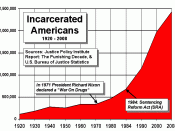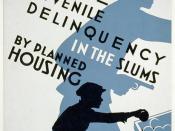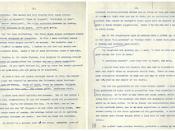Parens patriae is the legal term that defines the role of the state as the guardian to protect the interests of children who cannot take care of themselves. For example, in an abuse or neglect case, this concept is used to explain the state's duty to protect minors who lack proper care and custody from their parents. Another aspect of it is for delinquent children; kids under the age of sixteen are given under jurisdiction juvenile court system. . The majority of crimes and arrests are minors up to the age of twenty-five. Lets face it, it seems that the get tough approach should reduce juvenile crime: More severe penalties should deter juveniles from committing crime, and those chronic offenders who are not deterred can be locked away for longer periods of time. Or even having no juvenile programs at all. Several studies, however, suggest the impact of these get-tough strategies has been overstated.
These strategies often fail to deter the juveniles who are punished. By taking away the Juvenile justice system, it would mean that even children would be tried and sent to prison for a crime. The kids will no longer be called delinquents but now criminals. Certain data suggest that juveniles tried in adult court are more likely to re-offend than similar youth tried in juvenile court. Likewise, studies indicate that many other strategies-like the use of military-style camps-often fail to deter offenders. It is difficult to identify such offenders early in their careers, when confinement would have the largest impact. When among other things, juveniles usually commit their crimes in groups and the other group members may continue to offend at a high rate.
These programs, CHINS and the JV justice system are attacking the root causes of delinquency (prevention) and providing treatment to juvenile offenders...


